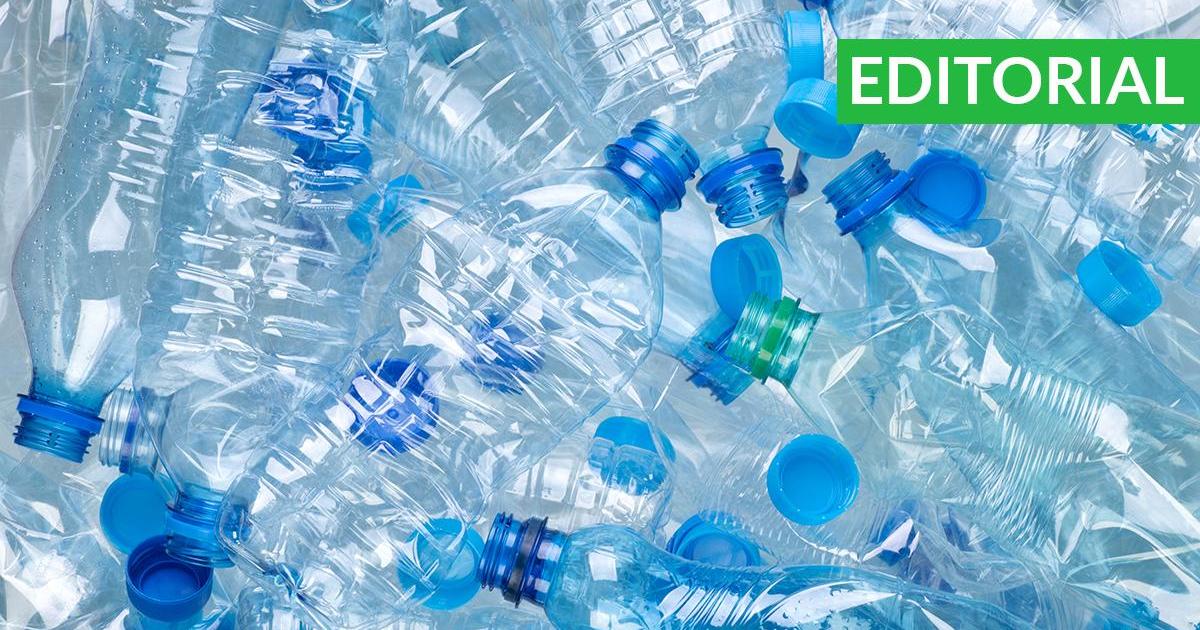The EU’s 2019 Single-Use Plastics Directive sets a target of 77 per cent separate collection of plastic bottles by 2025 and 90 per cent by 2029. It is, therefore, critically important that we keep up efforts to make the Beverage Container Refund Scheme (BCRS) a success. Deposit refund schemes (DRS) usually apply to plastic beverage bottles and cans. In some countries, these schemes also include the recycling of glass bottles. The BCRS has undoubtedly helped create awareness of the importance of recycling PET (polyethylene terephthalate) bottles. Still, the scheme, which has been in operation since 2022, is a work in progress as consumers often complain that the equipment used to deposit plastic bottles is often out of order. Essential developments on the BCRS will soon be in place. The prime minister has announced that the government will launch a pilot project allowing people over the age of 60 and blue badge holders to book a van to collect their recyclable bottles and cans. Although few details have been revealed, we hope the scheme will be further improved to make it more convenient for all consumers to recycle their plastic bottles and cans. With new priorities emerging on the EU’s agenda, the union must continue down the path of circularity and carbon neutrality. Every economic sector must contribute to making the break from plastic a reality. A transparent and forward-looking regulatory environment is crucial for achieving full circularity and carbon neutrality, as well as for delivering on the EU Green Deal. A 2020 report by the European Court of Auditors said nations with a DRS collect on average over 80 per cent of PET bottles compared to 58 per cent across the EU. Malta, like most European countries, has a DRS system based on a return-to-retail model, where the drinks retailers and producers are legally responsible for the recovery of empty containers. The operators of the DRS argue that, from an economic point of view, the scheme incurs high initiation and operating costs, which are considered very expensive, and the value for money could be questionable. However, increasing tariffs is not the solution. The prime minister is right to insist that operators must “improve their efficiency” and not demand higher tariffs. The beverage industry has another incentive to make the BCRS more user-friendly. The price of PET is rising fast and it therefore makes sense to recycle valuable materials to meet their green targets. Thanks to BCRS, the PET materials are returned directly to the beverage producers and do not result in downcycling when the material ends up at producers of textiles, toys or diapers. The EU needs to accelerate legislation to enhance the effectiveness of PET recycling. PET is a valuable material that has no place in landfills and incinerators. Countries like Germany, Austria, Denmark and the Netherlands have already implemented a ban on landfilling plastic. The European Commission must be bold and ban landfilling or recyclable PET bottles in all member states. Ultimately, what will ensure that we break free from plastic will be the ability of member states to empower their citizens to separate and recycle through education and awareness. The European Strategy for Plastics in a Circular Economy is transforming the way products are designed, produced and recycled. Better design of plastic products, higher plastic-waste-recycling rates and more and better-quality recyclates will help boost the market for recycled plastics. Education combined with industry’s action to design for recycling will help us reach our targets and break free from plastic.
